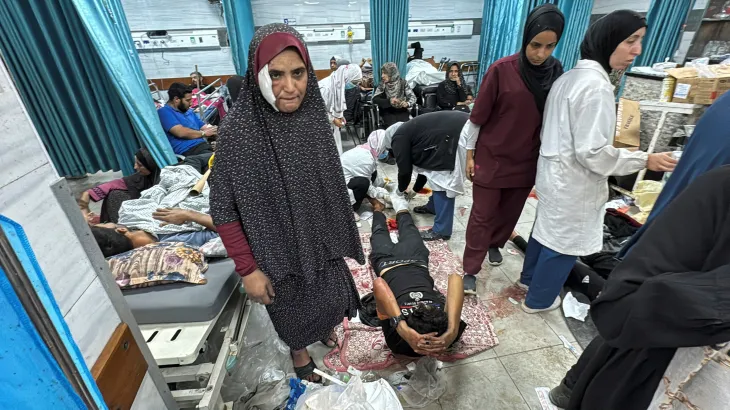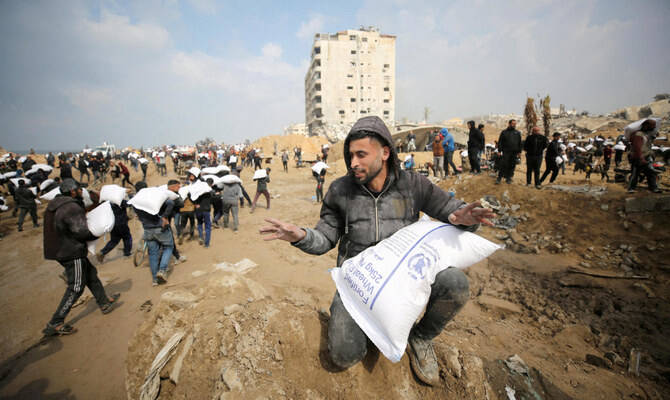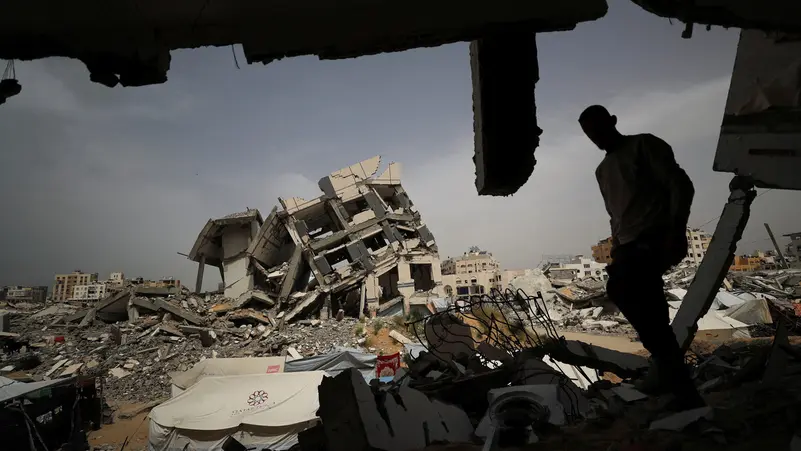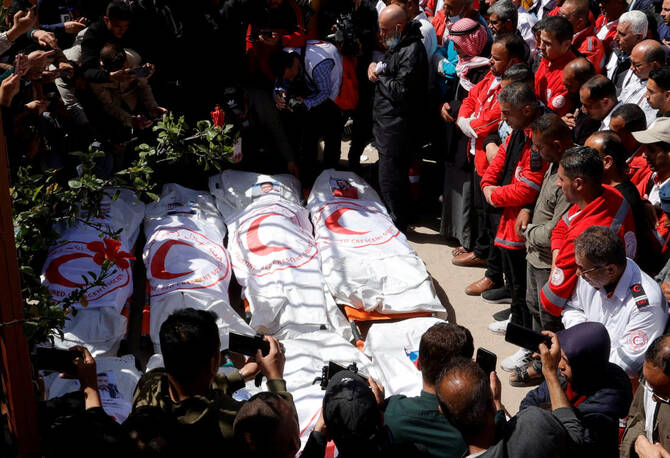The situation in Gaza has been fraught with conflict and tension for decades, and the recent detainment of Palestinian doctors by Israeli Forces has added a troubling layer to an already complex humanitarian crisis. Many of these medical professionals were detained while trying to provide essential health services amid escalating violence. Their roles are vital, as they not only serve the immediate needs of the community but also embody the hope of rehabilitation and recovery amidst ongoing strife.
Reports indicate that the Palestinian doctors were arrested under controversial circumstances, raising concerns about their treatment and the motivations behind such actions by the Israeli Forces. Many witnesses claim that these detainments occur during raids that indiscriminately target medical personnel, thus undermining the fundamental principle of neutrality in healthcare. The implications of such actions extend beyond individual cases; they threaten to destabilize the entire healthcare system in Gaza, which is already under severe strain due to resource shortages and the effects of prolonged conflict.
The impact of these detainments on medical services in Gaza is profound. Healthcare professionals play a crucial role in mitigating the effects of violence and trauma in civilian populations. When Israeli Forces target these individuals, it exacerbates the existing healthcare crisis, putting countless lives at risk. The fear of detainment not only affects those who wish to practice medicine but also discourages new professionals from entering the field. This instability creates a vicious cycle that ultimately harms the Palestinian community trying to rebuild in the face of adversity.
Furthermore, the international response to the detainment of Palestinian doctors has been varied. While some NGOs and human rights organizations have condemned the actions of Israeli Forces, others remain silent, reflecting the complex dynamics surrounding this conflict. The situation underscores the urgent need for greater advocacy and humanitarian support to protect healthcare workers in conflict zones. Ensuring that medical personnel can operate without fear is essential for nurturing a healthier future for Gaza.
As the situation develops, it is crucial to analyze the future implications of these detainments on peace and resolution efforts. While many hope for reconciliation, the targeting of medical professionals complicates these aspirations and highlights the challenges ahead. Engaging in constructive dialogue and taking actionable steps toward de-escalation is essential for establishing long-term peace and security within the region.
Historical Context Of Israeli-Palestinian Relations In Gaza
The historical context of Israeli-Palestinian relations in Gaza is a complex tapestry woven through decades of conflict, territorial disputes, and attempts at peace. The roots of this conflict can be traced back to the early 20th century, when Jewish migration to Palestine increased, leading to tensions with the local Palestinian population. The establishment of Israel in 1948 marked a significant turning point, resulting in the displacement of many Palestinians and the beginning of an ongoing struggle over land and identity.
Throughout the years, various wars, uprisings, and negotiations have shaped the dynamics between the two groups. In recent years, the Palestinian territories, especially Gaza, have become focal points for international attention due to the humanitarian crises and the Israeli Forces’ military actions. The blockade imposed on Gaza by Israeli Forces in 2007 has further exacerbated the situation, leading to dire economic conditions and limited access to essential services.
The detainment of Palestinian doctors by Israeli Forces is a recent manifestation of this long-standing conflict. Medical professionals who strive to provide care often find themselves caught in the crossfire of political tensions. This raises critical questions about the implications of such detainments on trust, medical services, and the overall humanitarian situation in Gaza.
Understanding this historical context is crucial for grasping the current events and the potential paths toward resolution in this deeply divided region.
How Palestinian Doctors Became Targets Of Israeli Forces
The situation in Gaza has brought to light the ongoing conflict between Palestinian people and Israeli forces. Among the various groups affected by this tumultuous environment, Palestinian doctors stand out, as they are essential to the health and well-being of the region. This article explores how these medical professionals have, unfortunately, become targets amidst the strife.
Historically, Palestinian medical personnel have played a crucial role in providing care during conflicts and crises. However, as tensions escalated, Israeli forces began to view them through a lens of suspicion, often deeming them as potential threats rather than vital healthcare providers. This perception has led to significant challenges for the medical community in Gaza.
Many Palestinian doctors have faced detainment during military operations, often without substantial evidence or justification. The fear of being targeted discourages medical professionals from performing their duties, which further exacerbates the healthcare crisis in the region. The implications of these actions have been dire, as essential healthcare services have been disrupted, leaving countless individuals without access to necessary medical attention.
As the situation continues to evolve, it is critical to recognize that Palestinian doctors are not part of the conflict; rather, they are essential responders facing adversity in an incredibly challenging environment. Understanding their plight is crucial in addressing the broader issues surrounding healthcare and conflict in Gaza.
The targeting of Palestinian doctors by Israeli forces reflects a troubling trend that can undermine the future of medical services in the region. The international community must acknowledge this issue and work towards fostering a safer environment for medical professionals to perform their life-saving work.
Analyzing The Impact Of Detainment On Medical Services In Gaza
The ongoing conflict between the Palestinian population and the Israeli Forces has led to a significant deterioration in the medical services available in Gaza. The detainment of Palestinian doctors has created considerable challenges for healthcare delivery in the region. With fewer medical professionals available, the quality of care patients receive is negatively impacted. Hospitals, already grappling with shortages of supplies and equipment, find it increasingly difficult to maintain essential services when their staff is at risk of detention.
Furthermore, the fear of detention has deterred many healthcare workers from performing their duties, particularly in sensitive areas. As a result, medical emergencies may go unaddressed or become exacerbated due to the Israeli Forces’ actions. The psychological toll on both patients and healthcare providers cannot be ignored. Those who continue to work under such pressures face heightened stress and anxiety, which can impair their ability to provide effective care.
Additionally, the international community has raised concerns about the implications of detaining Palestinian doctors for medical ethics and human rights. Organizations advocating for healthcare access have echoed the severity of this crisis, highlighting the urgent need for a resolution that respects the rights of medical professionals. Ultimately, the detainment of these doctors not only undermines healthcare in Gaza but also exacerbates the larger humanitarian crisis in the region.
International Response To The Detainment Of Palestinian Doctors
The detainment of Palestinian doctors by Israeli Forces has sparked global outrage and concern regarding the humanitarian implications for healthcare in the region. Many organizations, including the United Nations and various human rights groups, have condemned these actions, viewing them as a direct violation of medical neutrality. The role of doctors, who are supposed to provide care regardless of political conflict, is being undermined by the current tensions.
Moreover, the Israeli Forces’ actions have led to renewed discussions on the broader issues facing healthcare in Gaza, including the blockade, resource shortages, and increasing violence affecting medical facilities. The situation highlights the urgent need for a coordinated international response to not only address the immediate crisis but also work towards long-term solutions that ensure the protection of medical staff and the delivery of healthcare services to those in need.





